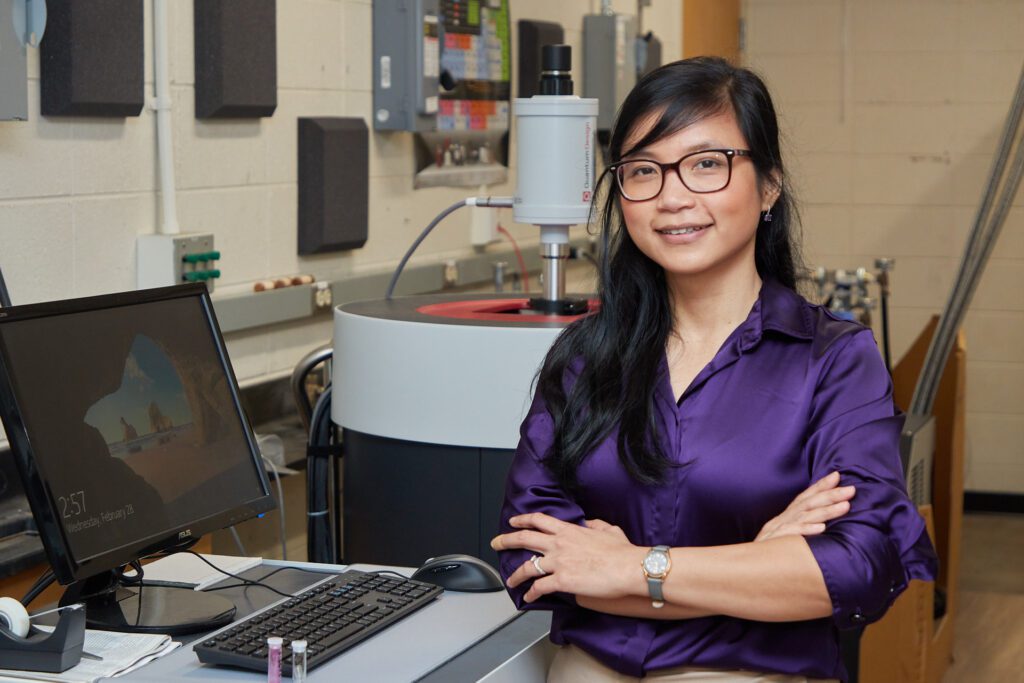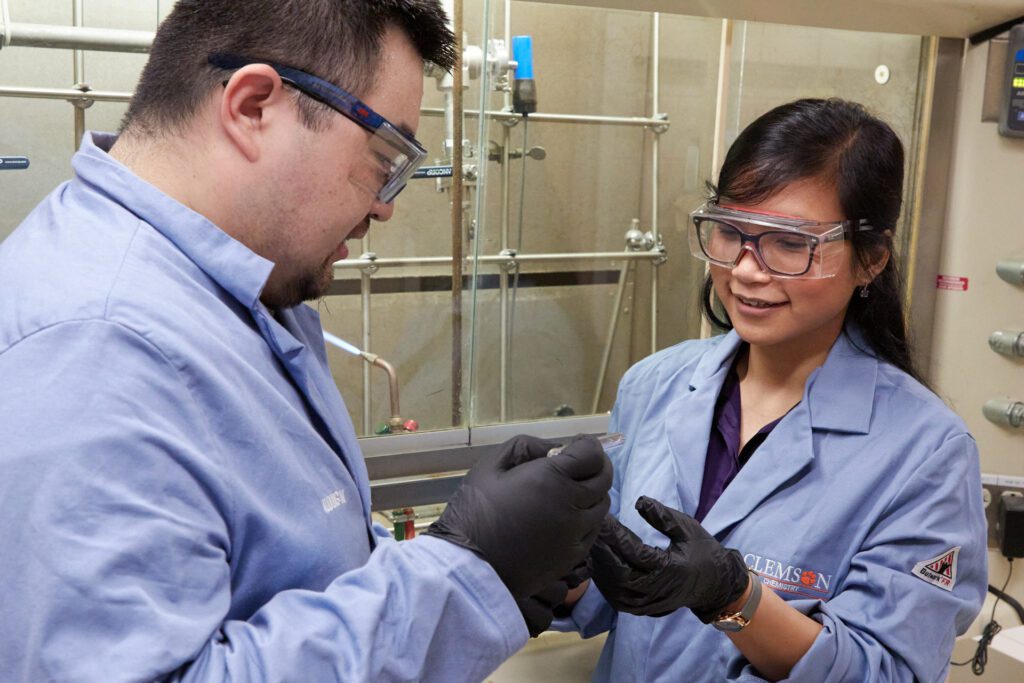First came the Stone Age. Then there was the Bronze Age, followed by the Iron Age. Now, it’s the Silicon Age.
Silicon, one of the most abundant elements on earth, is widely used in electronics, transportation and medical devices. But much like materials from previous ages, existing materials have their limits.
Because the size of the silicon atom dictates the amount of information that can be stored and the speed at which it can be calculated, silicon materials won’t be able to provide the improved technology we desire — smarter, compact notebooks with more space to store games, photos and videos; sleeker cell phones with quicker-loading apps and longer battery life; and more powerful, unparalleled computers.
“People are realizing the existing technology can only take us so far,” said Thao Tran, an assistant professor in the Clemson University Department of Chemistry. “Many projections show that in a few decades, half of the global energy will be consumed by information technology. We need a different way of storing and transmitting information. It’s an energy problem and an information technology problem.”

Tran has received a $718,100 National Science Foundation CAREER grant to develop a deep understanding of the chemistry-function relationships of solid-state materials potentially hosting tiny magnets, which can twist and turn in unique ways. The magnets would be no larger than the width of a human hair.
Tran and her lab will focus on a particular class of magnetic compounds that lack inversion symmetry in the structure and study how chemical bonding in these materials determines their physical properties.
Noncentrosymmetric magnetic materials hosting topological spin textures, or skyrmions, are at the forefront of new technological advances in quantum information science and spintronics. This is because of topological protection, a strange state wherein the physical properties of electrons are insensitive to defects and noisy environments such as lattice imperfections and room-temperature operations.
In this research, Tran and her lab will try to provide an efficient set of fundamental chemistry property guidelines for new noncentrosymmetric magnetic materials that facilitates (or hinders) the formation of skyrmions. To do so, they will use combined experimental and computational approaches using state-of-the-art synthetic techniques, magnetic and heat capacity measurements, X-ray diffraction, neutron scattering and density functional theory calculations.

NSF CAREER grants must have an educational component. Tran’s goal is to improve STEM competency and interest in material chemistry through an inquiry-based animation called “Adventures in Materials Discovery.”
“Materials are everywhere. The goal is to engage and excite students about the impact of material chemistry in their real world settings,” she said.
For each of the ages — Stone, Bronze, Iron, Silicon and Quantum — the animation will discuss the chemical and physical properties of the material along with its limitations and how they led to the next material revolution.
“My dream is to distribute this animation worldwide,” she said.
Earlier this year, Tran received a prestigious Beckman Young Investigators Award from the Arnold and Mabel Beckman Foundation to support her research in quantum technology. She was one of 11 researchers from across the U.S. selected from a pool of nearly 200 applicants after a three-part review led by a panel of scientific experts.
The Beckman Young Investigators Program supports the country’s most promising young faculty members in the early stages of their academic careers in the chemical and life sciences, particularly to foster the invention of methods, instruments and materials that will open new avenues of research in science. She was the first recipient from Clemson University and the first from a college or university in South Carolina.
Get in touch and we will connect you with the author or another expert.
Or email us at news@clemson.edu
